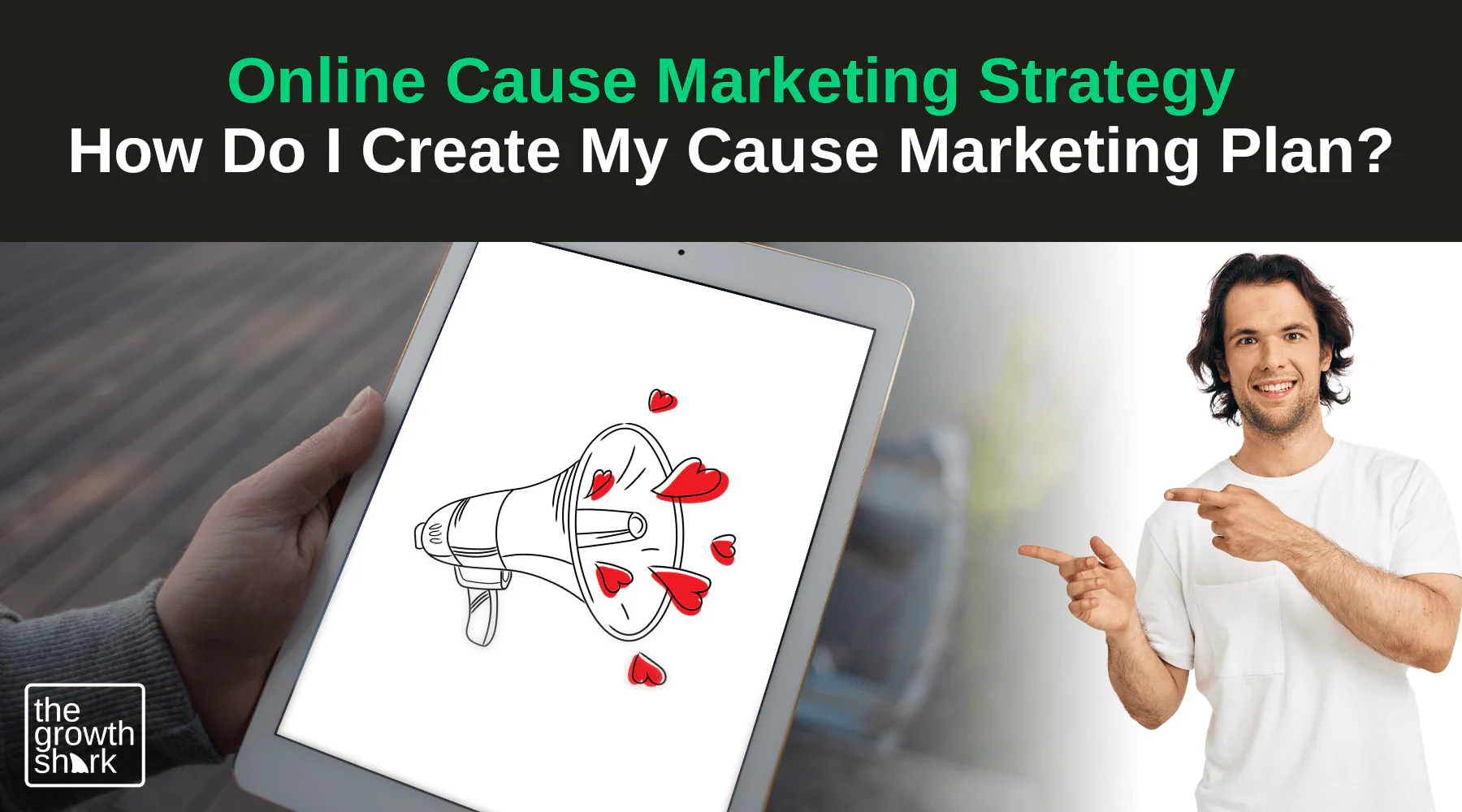Cause marketing has become an increasingly popular way for businesses to connect with their audiences by supporting social or environmental initiatives. While aligning your brand with a cause can drive meaningful change and foster consumer loyalty, it also comes with a significant responsibility: ensuring authenticity. When brands fail to demonstrate genuine commitment, they risk falling into the trap of “cause washing” — a superficial association with a cause for the sole purpose of gaining marketing benefits.
Cause washing not only undermines the integrity of a campaign but also damages a brand’s reputation, eroding the trust and loyalty of its audience. In today’s socially conscious landscape, consumers are more aware than ever and quick to call out insincerity. Authentic cause marketing, on the other hand, not only builds credibility but also creates a lasting positive impact on both the cause and the business.
Cause washing occurs when a brand aligns itself with a social or environmental cause in a way that appears insincere or performative. Instead of making a meaningful impact, these campaigns often prioritize optics over action, with the sole intent of gaining positive publicity or increasing sales.
This approach can backfire, as consumers today are highly discerning and quick to identify when a brand’s commitment lacks depth. Cause washing damages the trust between a company and its audience, leading to backlash that can tarnish a brand’s reputation.
Examples of Cause Washing
- Superficial Campaigns: A company might launch a campaign claiming to support sustainability while continuing environmentally harmful practices. For instance, a fashion brand advertising eco-friendly collections but failing to address its overall environmental footprint.
- Overstated Claims: Some brands exaggerate their contributions to a cause, misleading consumers into believing they’re making a larger impact than they actually are.
Impact of Cause Washing
- Loss of consumer trust and loyalty.
- Negative media coverage and public backlash.
- Missed opportunity to create meaningful change and build a credible brand identity.

Importance of Authenticity in Cause Marketing
Authenticity is the cornerstone of successful cause marketing. In a world where consumers are more socially and environmentally conscious than ever, brands must demonstrate genuine commitment to the causes they support. Authentic cause marketing not only strengthens a brand’s reputation but also creates a meaningful connection with its audience, driving long-term loyalty and trust.
Why Authenticity Matters
- Consumer Trust: Studies show that consumers are more likely to support brands that genuinely align with their values. Authentic cause marketing fosters trust, making customers feel confident in their decision to support your business.
- Emotional Connection: When a brand’s commitment to a cause feels real, it resonates emotionally with the audience, creating a deeper bond that goes beyond transactional relationships.
- Brand Reputation: Authentic campaigns position your brand as socially responsible and credible, helping to build a positive image in the marketplace.
Examples of Successful Authenticity
- Patagonia: Known for its environmental activism, Patagonia consistently backs its campaigns with actionable steps, such as donating a portion of sales to conservation efforts and encouraging customers to repair rather than replace clothing.
- Ben & Jerry’s: The ice cream brand integrates social justice initiatives into its operations, advocating for issues like racial equality and climate action with long-term partnerships and impactful messaging.
Steps to Ensure Authenticity in Cause Marketing

To avoid cause washing and build campaigns that resonate with integrity, brands must take deliberate steps to demonstrate genuine commitment to the causes they support. Here’s how to ensure your cause marketing efforts are authentic and impactful:
Align with Core Values
Choose causes that naturally align with your brand’s mission and values. When there’s a genuine connection between your company’s purpose and the cause you support, your campaign will feel authentic to your audience. For example, a sustainable fashion brand advocating for eco-friendly practices aligns its message with its core ethos.
Conduct Thorough Research
Understand the cause you’re supporting in-depth. Familiarize yourself with the challenges, stakeholders, and possible solutions. This knowledge allows you to engage in a meaningful way and ensure your contributions are impactful rather than superficial. Avoid jumping on trendy causes without fully understanding their implications.
Involve Stakeholders
Partner with credible nonprofits, community organizations, or activists who are already making a difference in the space. Collaboration not only amplifies your efforts but also lends credibility to your campaign. For example, teaming up with a reputable charity ensures your contributions are directed to meaningful initiatives.
Be Transparent
Clearly communicate your goals, actions, and results to your audience. Let them know exactly how their support contributes to the cause. Share detailed reports, updates, and stories about the impact of your efforts. Transparency builds trust and helps your audience see the tangible effects of your campaign.
Commit for the Long-Term
Avoid one-off campaigns that feel opportunistic. Demonstrate sustained commitment to the cause through ongoing support and initiatives. Consistency signals to your audience that you are genuinely invested in making a difference rather than using the cause as a marketing gimmick.
Prioritize Action Over Messaging
Your contributions should go beyond raising awareness. Invest in concrete actions that address the root of the issue. For example, instead of simply promoting environmental awareness, fund tree-planting initiatives or renewable energy projects to create measurable impact.
Involve Your Audience
Give your customers and employees the opportunity to participate in the cause. This could include donation matching, volunteer opportunities, or creating user-generated content campaigns. By engaging your audience, you foster a sense of community and shared purpose.
Avoiding Common Pitfalls

Cause marketing, when done right, can elevate a brand’s reputation and create meaningful change. However, the path to authenticity is often littered with pitfalls that can turn good intentions into PR disasters. Consider this: if your campaign looks like a hastily put-together PowerPoint presentation with big promises and little substance, it’s likely to face the wrath of today’s hyper-aware audience.
One memorable example comes from a well-known fast fashion brand that claimed to launch a sustainable clothing line to combat climate change. The issue? They failed to address their primary business model, which thrives on overproduction and waste. Consumers quickly saw through the facade, and the brand faced backlash for greenwashing—essentially the environmental equivalent of putting lipstick on a pig.
To avoid falling into similar traps, brands must first understand that cause marketing isn’t about slapping a trendy hashtag onto a campaign. It’s about meaningful action. Take Patagonia, for example. When they launched their “Don’t Buy This Jacket” campaign, it wasn’t just a clever headline—it was a bold statement about reducing consumption and advocating for repair over replacement. They backed it up with repair services and environmental commitments, earning both trust and admiration.
The key here is transparency and alignment. If your brand sells sugary sodas, claiming to fight obesity is as counterproductive as throwing water on a grease fire. Instead, focus on causes that resonate with your brand’s mission. Choose your battles wisely—if you can’t fight them authentically, you shouldn’t fight them at all.
Moreover, avoid the temptation to overpromise. Nobody likes a campaign that shouts, “We’re saving the planet!” while quietly adding an asterisk: *Only on alternate Thursdays. Consumers appreciate honesty over hollow claims. It’s far better to say, “Here’s what we’re doing to improve, and here’s how you can hold us accountable.” Transparency isn’t just a buzzword; it’s your armor against skepticism.
Another common misstep is treating cause marketing as a one-off event rather than a sustained commitment. Imagine if a brand declared their undying love for a cause but ghosted it after one Instagram post. Authenticity isn’t a fleeting fling; it’s a long-term relationship. Show up consistently, engage actively, and make a real impact.
Leveraging Consumer Trust Through Authenticity

Here’s how to build and leverage consumer trust through authentic cause marketing:
- Create Tangible Impact:
Consumers want to see results, not just promises. Show them how your campaigns are creating measurable change, whether through community programs, donations, or other initiatives. For instance, sharing success stories or progress reports can reinforce the impact your efforts have made. - Engage Your Audience:
Make your customers a part of your cause marketing journey. Whether it’s donation matching, crowdsourcing ideas, or organizing volunteer events, giving them opportunities to contribute fosters a sense of shared purpose and strengthens their connection to your brand. - Communicate with Transparency:
Don’t leave your audience guessing. Be clear about how funds are used, the goals of your initiatives, and the challenges you’re addressing. Transparency builds credibility and makes your audience feel confident in their decision to support you. - Stay Consistent:
Authenticity isn’t a one-time effort. It requires sustained engagement and commitment. Regularly highlight your progress, keep the cause front and center in your messaging, and make it a continuous part of your brand’s story.
Ready to Make an Impact Together?
At The Growth Shark, we’re experts in creating authentic, impactful campaigns that build trust and drive meaningful change. Partner with us to craft cause marketing strategies that resonate with your audience and amplify your brand’s impact. Let’s work together to inspire action and create a better tomorrow—Book a free call with us today!









